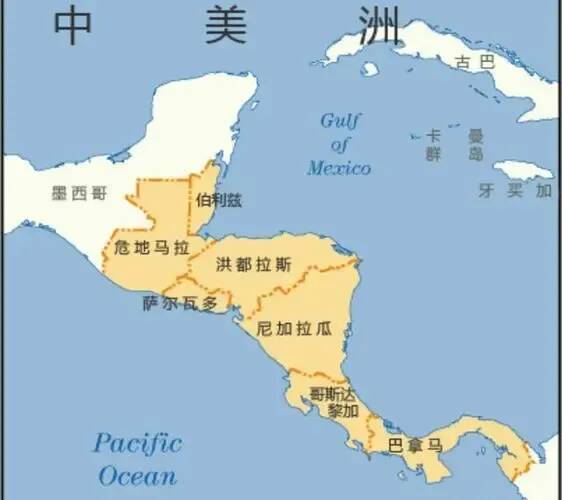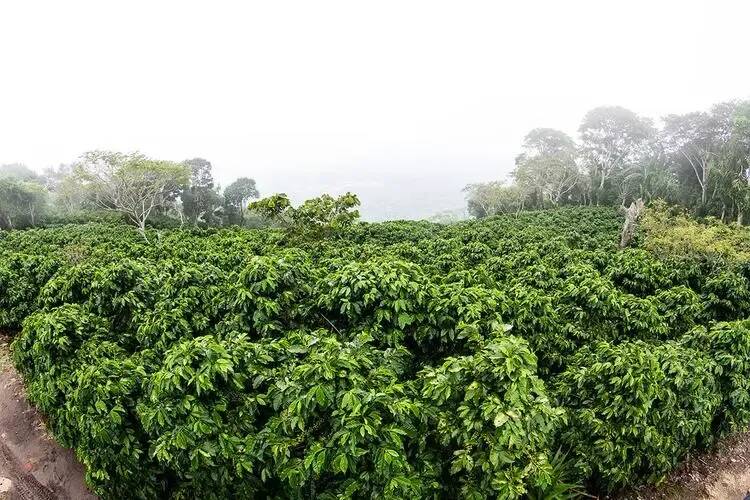Introduction to Apaneca-Ilamatepec, a coffee producing area in El Salvador
The economy of Central America is dominated by agriculture, especially for export of bananas, coffee, sugar cane and other tropical cash crops, all because the topography of the region is dominated by plateaus, mountains and forests, and has a volcanic belt more than 1300 kilometers long.
Due to the accumulation of volcanic ash, fertile soil and diverse climate here, many countries in Central America are famous for producing coffee. Among them, El Salvador produces much less than other countries, but El Salvador has a unique planting environment and diversified flavor performance.

Until the advent of coffee, the plant dye indigo had been El Salvador's main export crop, but in the 19th century, with the emergence of new and cheaper man-made dyes, the country's indigo export business gradually disappeared. coffee replaced indigo as the country's largest export crop.
But coffee-growing land was largely held by the country's politicians, including the then president, who once owned more than 6000 hectares of land. And these politicians use their positions (and the army) to force farmers to cede land and do low-paid or unpaid work on estates, but these politicians are willing to invest in infrastructure, allowing the coffee industry to flourish. In 1920, 90% of El Salvador's exports were coffee, and by 1970, El Salvador became the fourth largest coffee producer in the world.

But the good times did not last long. The civil war in El Salvador broke out in 1979 and did not end until 1992. Although it affected the coffee industry, it also brought about new land reforms, breaking down many large estates, cutting up the land and redistributing it to landless workers. Today, 95% of coffee growers in El Salvador grow coffee on less than 20 hectares of land, and although coffee production has declined a lot, the country's coffee industry is beginning to shift towards quality.
Such achievements are all due to the unique planting environment in El Salvador, known as the "country of volcanoes", with 25 volcanoes, mainly mountainous and plateau topography, and fertile soil. The whole territory has a tropical climate, but the mountain climate is cool, with an annual rainfall of more than 1800 mm. Although the country now has only 11% of the forest area due to urbanization, 7% of which are coffee farms, it plays a good role in environmental protection. More than 90% of the local coffee grows under shade trees, which slows fruit ripening, maintains the diversity of local and migratory wildlife, supports aquifers through water storage, and prevents soil erosion.
Coffee producing areas are spread all over the country, of which the Alotepec-Metapan high mountains of Alotepec-Metapan in the north and the Apaneca-Ilamatepec volcanic areas of Apaneca-Iramatpec in the west are the most famous, appearing in the COE competition in El Salvador all the year round. Most of these producing areas grow Pacamara and Pacas varieties and have repeatedly won places in coffee competitions.
Apaneca-Iramatpec Apaneca-Ilamatepec is El Salvador's largest producing area, located in the west of El Salvador, full of forests, lakes and mountains, as well as four volcanoes, mainly Santa Ana (also known as Ilamatepec volcano), while coffee is grown on slopes at an altitude of 800 to 2300 meters above sea level on both sides of the mountain range. Although volcanic activity is frequent here, the ash gives more fertile soil and a diversified microclimate. This makes it possible to produce high-quality coffee, and most of the estates in COE in El Salvador this year are from this area, including the second place in the tanning group, El Aangel.
The owner of El Aangel is Rafael Gerardo Silva Esteves. The estate was first acquired by the Mathies family in 2016, when it was just a piece of land, began growing coffee in 2018, and Rafael worked in the farm's factory until 2022, when Rafael acquired the estate.
The estate is located on a volcano in Santa Ana, at 1650 meters above sea level, and the climate is different from other estates. The climate is hotter and drier, it is very suitable for sun treatment, and there is a greater temperature difference between day and night. Together with the mineral-rich volcanic soil, it helps to produce high-quality coffee. The estate currently grows varieties such as Pacamara, Pacas, Geisha and SL28, while owner Rafael says some new varieties, such as Sidra and Chiroso, will be introduced in the future.
Important Notice :
前街咖啡 FrontStreet Coffee has moved to new addredd:
FrontStreet Coffee Address: 315,Donghua East Road,GuangZhou
Tel:020 38364473
- Prev

Why does espresso go with ice water? Why can ice water clean the mouth? How to improve the flavor perception of coffee?
In the past two days, guests stationed in Qianjie Store have discovered an interesting phenomenon! Some customers clearly ordered a cup of hot coffee, but also asked Qianjie for a cup of ice water. Then before drinking coffee, you have to take a sip of ice water before drinking coffee. So this puzzled him. What good would it do? Alternate hot and cold, difficult
- Next

Manner, a large number of part-time students have been temporarily dismissed!
▲ Click to pay attention| Daily Boutique Coffee Culture Magazine Coffee Factory Recently, many netizens posted on social platforms saying that they were inexplicably dismissed from working part-time in Manner. The person posted said that he arrived at the store early on the day of his part-time job job, packed and cleaned during work, and didn't dare to ask himself to stop.
Related
- What grade does Jamaica Blue Mountain No. 1 coffee belong to and how to drink it better? What is the highest grade of Blue Mountain coffee for coffee aristocrats?
- What are the flavor characteristics of the world-famous coffee Blue Mountain No. 1 Golden Mantelin? What are the characteristics of deep-roasted bitter coffee?
- Can I make coffee a second time in an Italian hand-brewed mocha pot? Why can't coffee be brewed several times like tea leaves?
- Hand-brewed coffee flows with a knife and a tornado. How to brew it? What is the proportion of grinding water and water temperature divided into?
- What is the difference between Indonesian Sumatra Mantinin coffee and gold Mantinin? How to distinguish between real and fake golden Mantelin coffee?
- What does bypass mean in coffee? Why can hand-brewed coffee and water make it better?
- Unexpected! Ruixing Telunsu lattes use a smoothie machine to foam milk?!
- % Arabia's first store in Henan opens into the village?! Netizen: Thought it was P's
- Does an authentic standard mocha coffee recipe use chocolate sauce or powder? Mocha Latte/Dirty Coffee/Salty Mocha Coffee Recipe Share!
- What is the difference between Vietnam egg coffee and Norway egg coffee? Hand-brewed single product coffee filter paper filter cloth filter flat solution!

